In an effort to protect the country's rare medicinal plant, Ngoc Linh ginseng ( Panax vietnamensis Ha et Grushv.), which is facing the challenge of being damaged by a disease that causes massive root rot, preventing the ginseng from growing and developing, a group of scientists from Duy Tan University and the Vietnam Academy of Agriculture have focused on research to find the cause of the disease as well as finding a biological solution to protect the plant known as Vietnam's "national treasure" and a "miracle drug" in medicine.
After more than two years of research, the team made a breakthrough discovery when they found two species of mushrooms:
- Fusarium stercicola , and
- Fusarium babinda
causing root rot disease on Ngoc Linh ginseng. The research was published in the European Journal of Plant Pathology (SCIE, IF=1.9), receiving international recognition for the group's important contribution.
Finding the cause of root rot in Ngoc Linh ginseng
Ngoc Linh ginseng is a precious medicinal herb with high economic value, proven to help strengthen the immune system, memory, anti-inflammatory, anti-stress, anti-cancer and prevent aging. Therefore, Ngoc Linh ginseng growers always spend a lot of time and effort to take care of this precious medicinal herb. During a survey trip to village 4, Tra Linh commune, Da Nang city - one of the "holy lands" of Ngoc Linh ginseng, Dr. Nguyen Thanh Trung - a researcher at the Center for Pharmaceutical Biotechnology and lecturer, Duy Tan University discovered many areas growing ginseng under the forest canopy with abnormal signs such as wilted stems, yellow leaves and rotten roots. This reality requires a reliable and effective scientific solution to help the plant become "healthy" again, to create sustainable development for this precious medicinal herb.
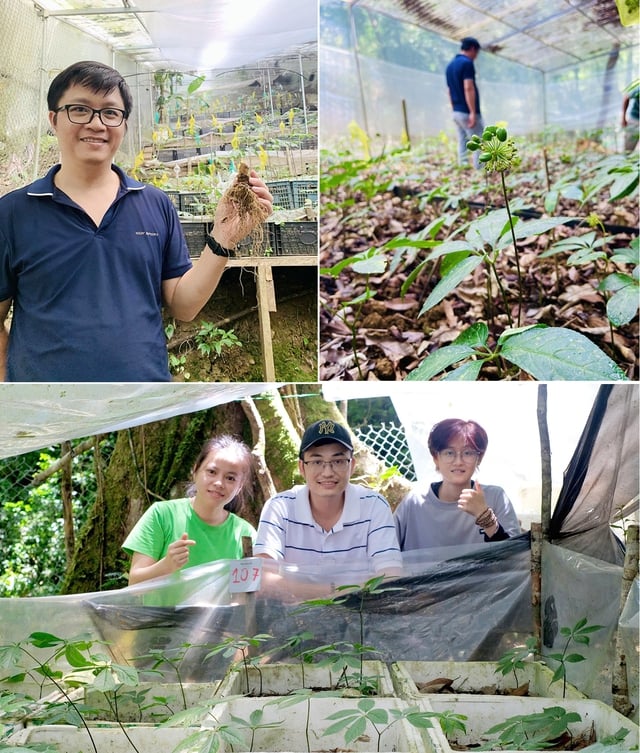
DTU scientists go to study Ngoc Linh ginseng in village 4, Tra Linh commune, Da Nang city.
Dr. Nguyen Thanh Trung, together with Dr. Quach Thi Thu Huong - Research Officer at the Center for Pharmaceutical Biotechnology and the Center for International Medical Training, and lecturer at Duy Tan University, and Dr. Ho Thanh Tam - Research Officer at the Institute for Global Health Initiatives, and Head of the Department of Biotechnology, Duy Tan University, and colleagues at the Faculty of Biotechnology, Vietnam National University of Agriculture, have started experiments to isolate and identify pathogens as well as find potential antagonistic strains of actinomycetes. The National Foundation for Science and Technology Development (Nafosted) has provided funding for scientists to quickly implement this important research.
Dr. Nguyen Thanh Trung shared: " When we discovered that Ngoc Linh ginseng plants showed signs of wilting stems, yellow leaves and rotten roots, we realized that the risk of economic loss was very high if the pathogen spread to the ginseng nurseries and finished ginseng products. During the survey at the ginseng garden, the research team encountered difficulties in collecting diseased samples because people often uprooted and cut off the rotten roots as soon as they detected signs of infection. Moreover, currently in Vietnam there has been no official research to determine the pathogen causing root rot in Ngoc Linh ginseng. Worried about the current situation of ginseng disease, people actively cooperated with the research team, willing to support and provide diseased ginseng root samples to serve the team's research process."
New discoveries and biological solutions to protect precious medicinal species
Determined to find the cause of the disease in this precious medicinal herb, the research team isolated and analyzed disease samples using modern methods combining morphology and gene analysis (ITS, LSU, tef1, rpb2). From here, the team identified two species of fungi belonging to the genus Fusarium:
- Fusarium stercicola (SNL 23.1), and
- Fusarium babinda (SNL 23.2)
is the main pathogen, with the ability to cause wilting, yellow leaves and root rot after only 7-9 days from the time of infection, especially in young plants from 1-2 years old.
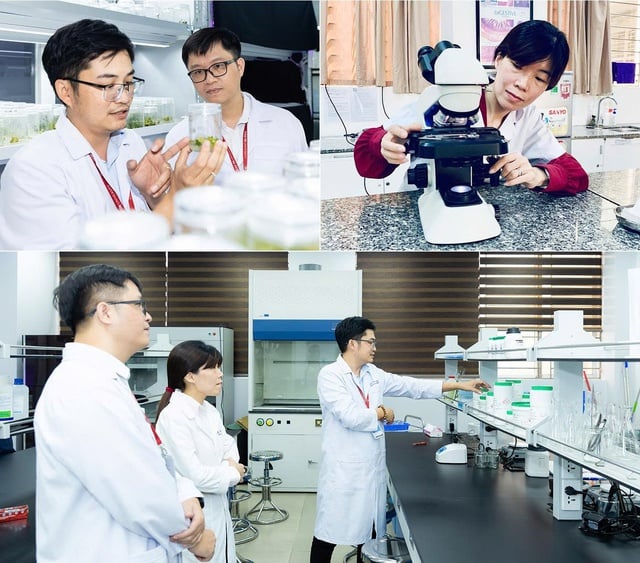
Root rot disease of Ngoc Linh ginseng was studied at the Cell Technology Laboratory and the Center for Pharmaceutical Biotechnology, Duy Tan University.
Dr. Quach Thi Thu Huong said: " During the process of isolating, monitoring growth and testing infection to accurately identify the pathogen on Ngoc Linh ginseng, we discovered two different species of fungi that both have the ability to cause root rot - something that has never been recorded before. From the step of experimental infection on model plants to successful testing on Ngoc Linh ginseng, the entire process was carried out carefully to ensure the reliability of the experiment. The results of this research by the group have been published in the European Journal of Plant Pathology, a prestigious journal in the industry. Based on this research, we hope to contribute to building a more solid scientific foundation for disease prevention and conservation of precious medicinal herbs."
Immediately after finding the cause, the research team focused on finding solutions to control the disease and prioritized the use of no toxic chemicals. From the screening process of 46 Streptomyces strains in the internal strain bank, the team discovered two strains:
- Streptomyces owasiensis, and
- A new strain designated X18
has the ability to inhibit the growth of Fusarium fungi. In addition, these actinomycetes also have the ability to promote the growth of ginseng roots, helping the plant absorb nutrients better, thereby growing healthily.
Associate Professor, Dr. Nguyen Xuan Canh - Head of the Department of Biotechnology, Vietnam Academy of Agriculture said: " In-depth research on the pathogenic mechanisms of pathogens and the antagonistic mechanisms of actinomycetes on plants, especially Ngoc Linh ginseng, is extremely important. In the coming time, the Department of Biotechnology will continue to cooperate with the research team of Duy Tan University to continue isolating and screening strains of actinomycetes and bacteria in Ngoc Linh ginseng roots, aiming to research and create biological products to help prevent diseases and enhance the growth and resistance of ginseng plants".
After many years of research on Ngoc Linh ginseng, Dr. Ho Thanh Tam said: " With favorable conditions when Duy Tan University invested systematically and modernly in equipment at the Center for Pharmaceutical Biotechnology, the Cell Technology Laboratory and laboratories of the DTU School of Medicine and Pharmacy, we are confident to continue to conduct research both outside the growing area as well as in the laboratory to bring the most useful results to the community.
The research results of the group published in a prestigious Springer Nature journal on plant science is an international recognition for the important contributions from Vietnam and is also a great source of encouragement, motivating us to aim for the ultimate goal of finding an effective method to prevent and treat diseases on Ngoc Linh ginseng, helping farmers confidently expand the growing area. This contributes to increasing people's income and realizing the Vietnam Ginseng Development Program to 2030, with a vision to 2045, approved by the Prime Minister under Decision No. 611/QD-TTg dated June 1, 2023."
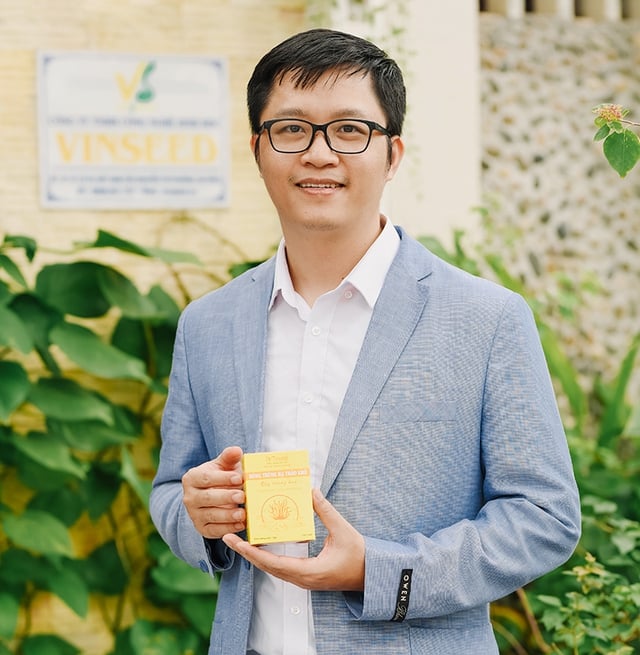
Dr. Nguyen Thanh Trung - Researcher at the Center for Pharmaceutical Biotechnology and lecturer at Duy Tan University: Focuses on research on microorganisms and the application of microbiological technology in the fields of Agriculture and Environmental Protection. Dr. Trung is the author of the model " Household-scale Cordyceps Cultivation Cabinet " - the product that won First Prize in the Da Nang City Innovation and Startup Competition in 2022. He has published more than 30 scientific articles in international journals, of which 10 are the main author, mainly focusing on the field of microbiology. He is also the owner of a very successful startup, the wine brand "Dr. Trung".
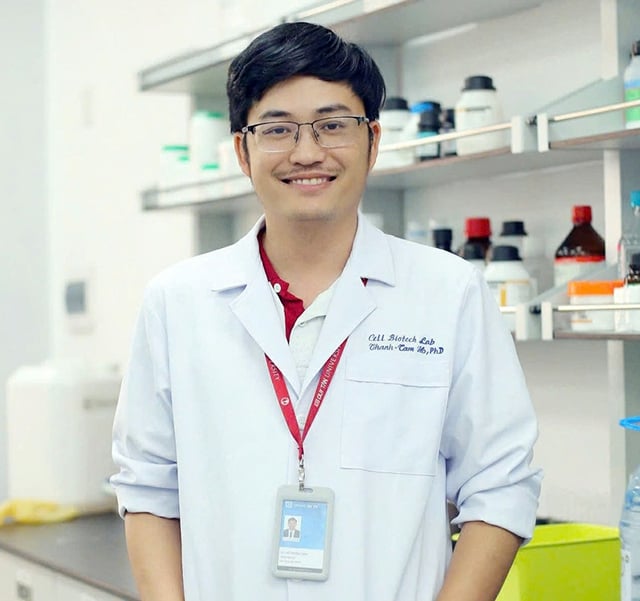
Dr. Ho Thanh Tam - Research Officer at the Institute for Global Health Initiatives, and Head of the Department of Biotechnology, Duy Tan University: The main research direction is the application of Biotechnology in medicinal herbs and high-tech agriculture. In 2020, Dr. Tam was honored in the top 10 scientists receiving the Golden Globe Award for Science and Technology. He has published more than 40 articles in prestigious international journals and participated in reviewing for many prestigious Q1 and Q2 journals.
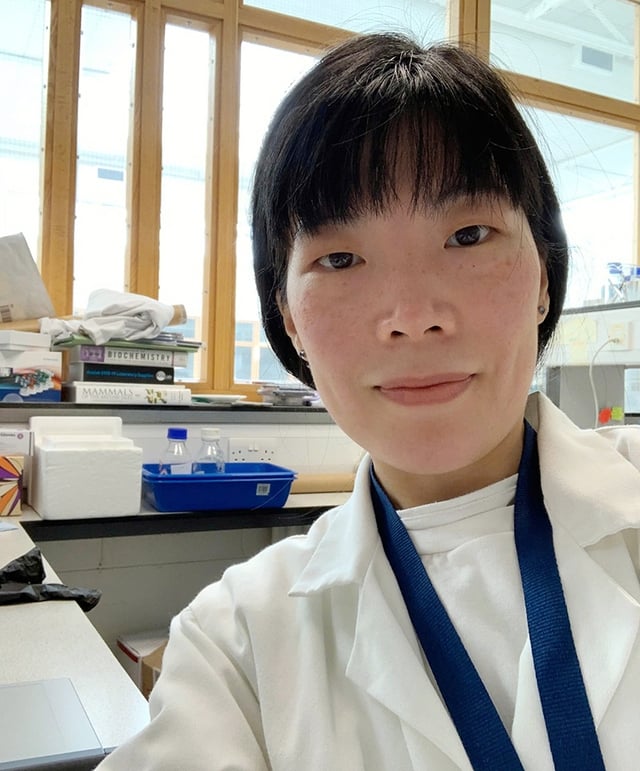
Dr. Quach Thi Thu Huong - Researcher at the Center for Pharmaceutical Biotechnology and the Center for International Medical Training, and lecturer at Duy Tan University: Focusing on research on Microbiology, Molecular Medicine and pathological mechanisms, with the orientation of developing personalized treatment methods for cancer and infectious diseases. One of Dr. Huong's current research directions is to exploit biological active ingredients from Ngoc Linh ginseng and indigenous medicinal herbs, to evaluate their impact on the microbiome and human cells, thereby applying them in disease treatment. Dr. Huong has participated in reviewing for a number of prestigious international journals, with more than 5 international articles, including Q1 journals such as Nucleic Acids Research, ACS Chemical Biology.
Source: https://thanhnien.vn/cac-nha-khoa-hoc-dh-duy-tan-phat-hien-loai-nam-gay-thoi-re-sam-ngoc-linh-18525071817371584.htm





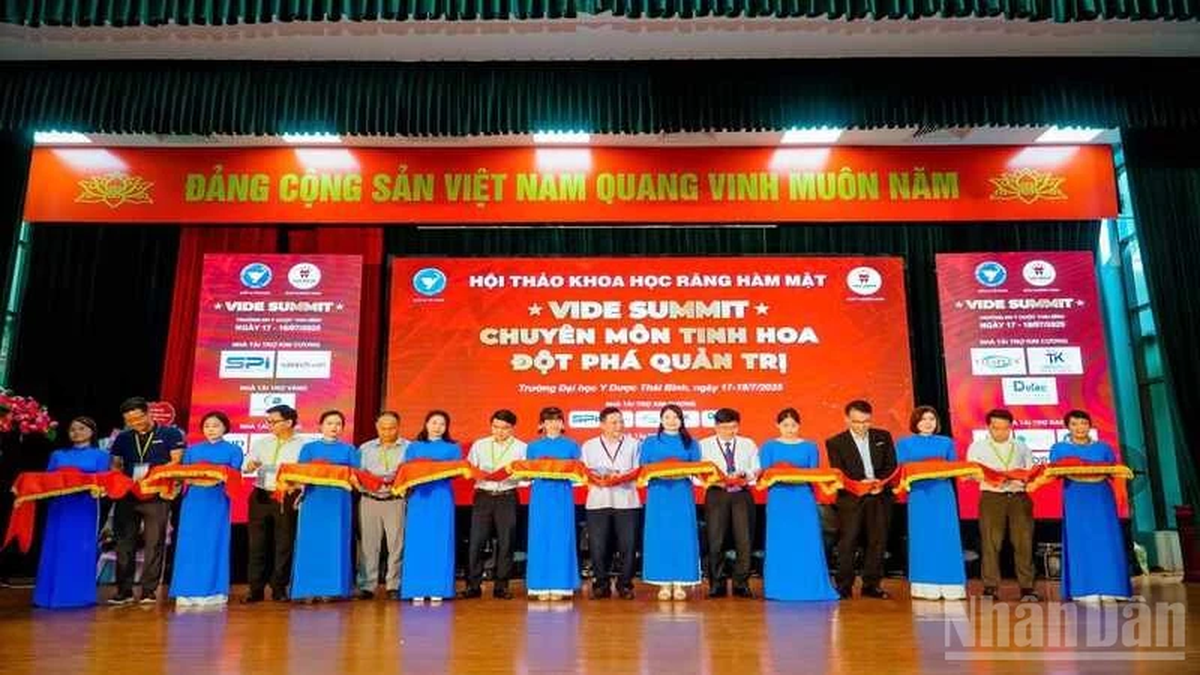



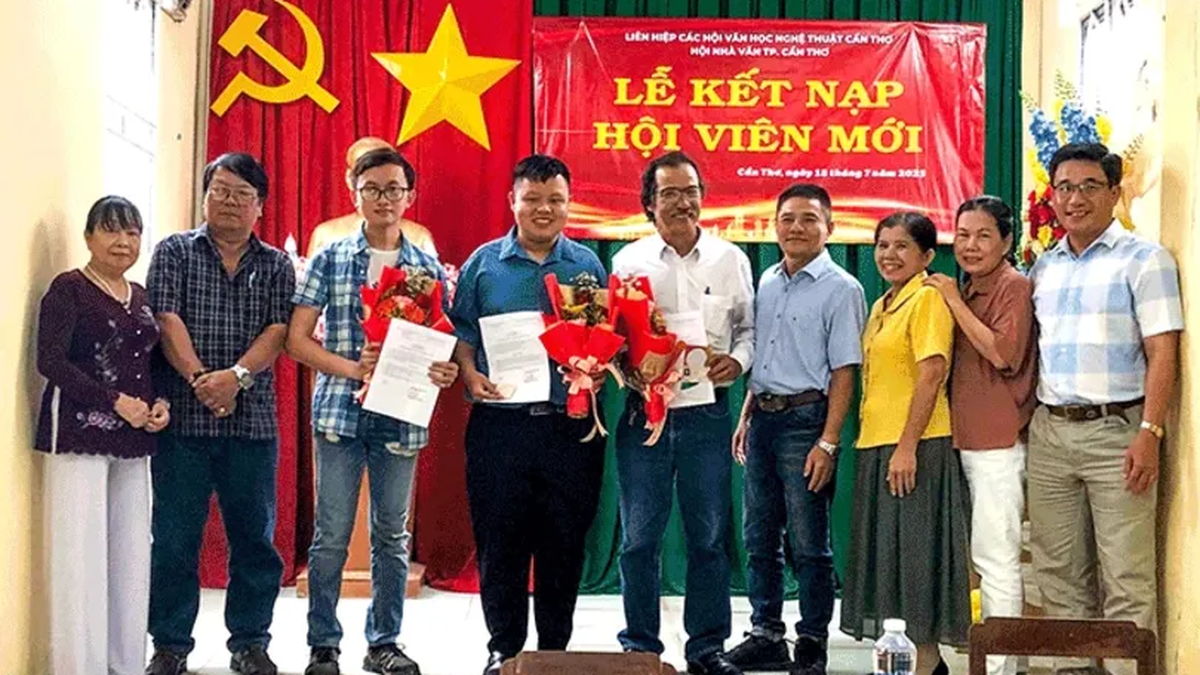
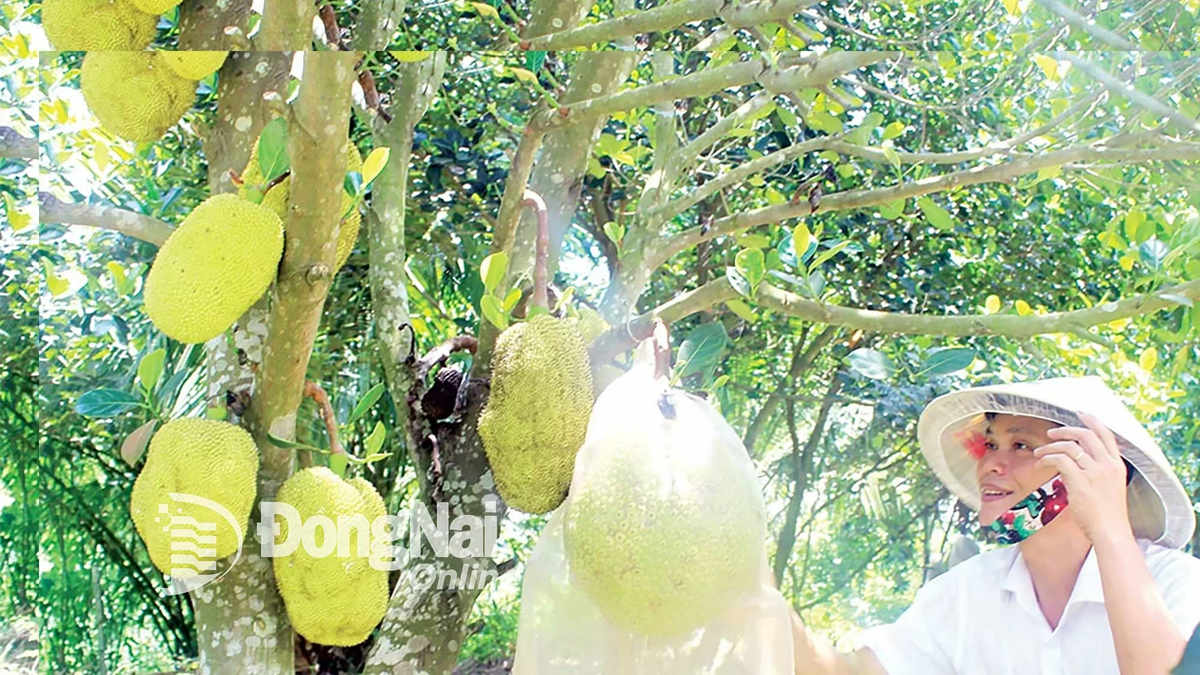


















































































![[Infographic] In 2025, 47 products will achieve national OCOP](https://vphoto.vietnam.vn/thumb/402x226/vietnam/resource/IMAGE/2025/7/16/5d672398b0744db3ab920e05db8e5b7d)





Comment (0)